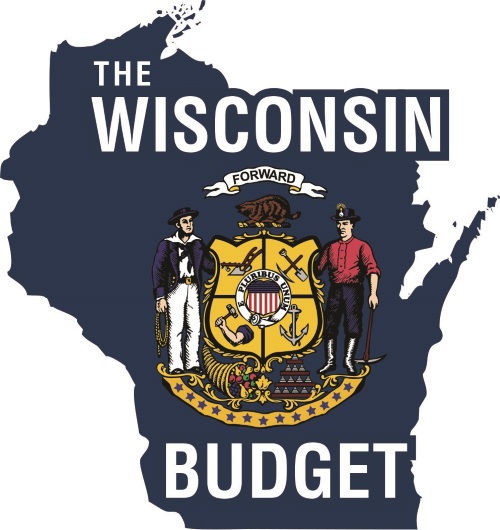

The WISCONSIN Budget
Governor Tony Evers signed the WISCONSIN budget that the legislature put on his desk last week.
The budget that the legislature sent to Governor Evers funded the priorities of Wisconsinites, not a liberal wish list, in a fiscally responsible manner. Republicans were able to fund health care needs such as increasing nursing home payments and caregiver wages; provide the largest total funding in actual dollars for K-12 education; and provide Wisconsin taxpayers with an income tax cut of nearly $500 million.
However, Governor Evers has the some of the most powerful veto powers in the nation, and chose to use these powers to remove or change many of the important investments included in the bill.
Wisconsin's Governor can take multiple actions on the bill including: signing the bill as is, vetoing the entire bill, or using his power of a "partial veto" to strike down words or sentences in the bill to change the meaning of the proposed legislation.
While the budget the legislature passed was able to rein in the Governor's spending, the Governor used his "partial veto" to reinstate many provisions of his proposal. This e-update will be focusing on the largest of these changes.
As always, I encourage you to follow my updates on social media or contact my office directly with your questions. Best wishes on your weekend!

Removing Funding for Welfare Reforms
Governor Evers continues to oppose common-sense welfare reforms that have been helping Wisconsin reach record unemployment. Using his veto powers, Governor Evers removed $20 million in funds to help able-bodied adults get the education or training they need to reenter the workforce. In addition to removing the funds for training, he also removed funding for the drug screening and providing substance abuse treatment for those found to be using drugs illegally.
At a time when employers need workers who are clean and ready to be on the job, it makes sense to help workers get trained and get clean so they can get a job and improve their future. Now is not the time to be expanding the amount of people on welfare.
Reducing Aid for Local Roads
The budget, as passed by the legislature, provided $90 million for local road aids. Governor Evers reduced this number by $15 million and is allowing this money to be diverted to fund transit projects in Madison and Milwaukee. Governor Evers also removed any restrictions on this money, which creates a DOT slush fund of $75 million instead of directing it to local roads as intended.
Improved roads and infrastructure are vital for the economic well-being of every area in the state. This money should be used to ensure that local communities throughout Wisconsin have quality roads, rather than used for transit projects in just two cities.
Prioritizing Milwaukee and Madison
Like the transportation changes above, many of the provisions that the Governor vetoed benefit the two largest cities in Wisconsin at the expense of the rest of the state. Governor Evers repealed a provision to require Milwaukee to pay their fair share for their child welfare services at the expense of Wisconsin's 71 other counties. Governor Evers also directed all funding of the Youth Summer Jobs program to go to Milwaukee and vetoed funding directed to helping school districts throughout the state purchase efficient buses.
While it is important to ensure that all communities, including Madison and Milwaukee, have the tools they need to succeed, we should not be prioritizing one area at the expense of another. These common sense provisions that Governor Evers removed allowed for all counties and communities to be treated equally.
Office of Rep. Terry Katsma
State Capitol, Room 306 East
PO Box 8952
Madison, WI 53708
Toll-Free (888) 529-0026 or (608) 266-0656
Rep.Katsma@legis.wisconsin.gov| |
|